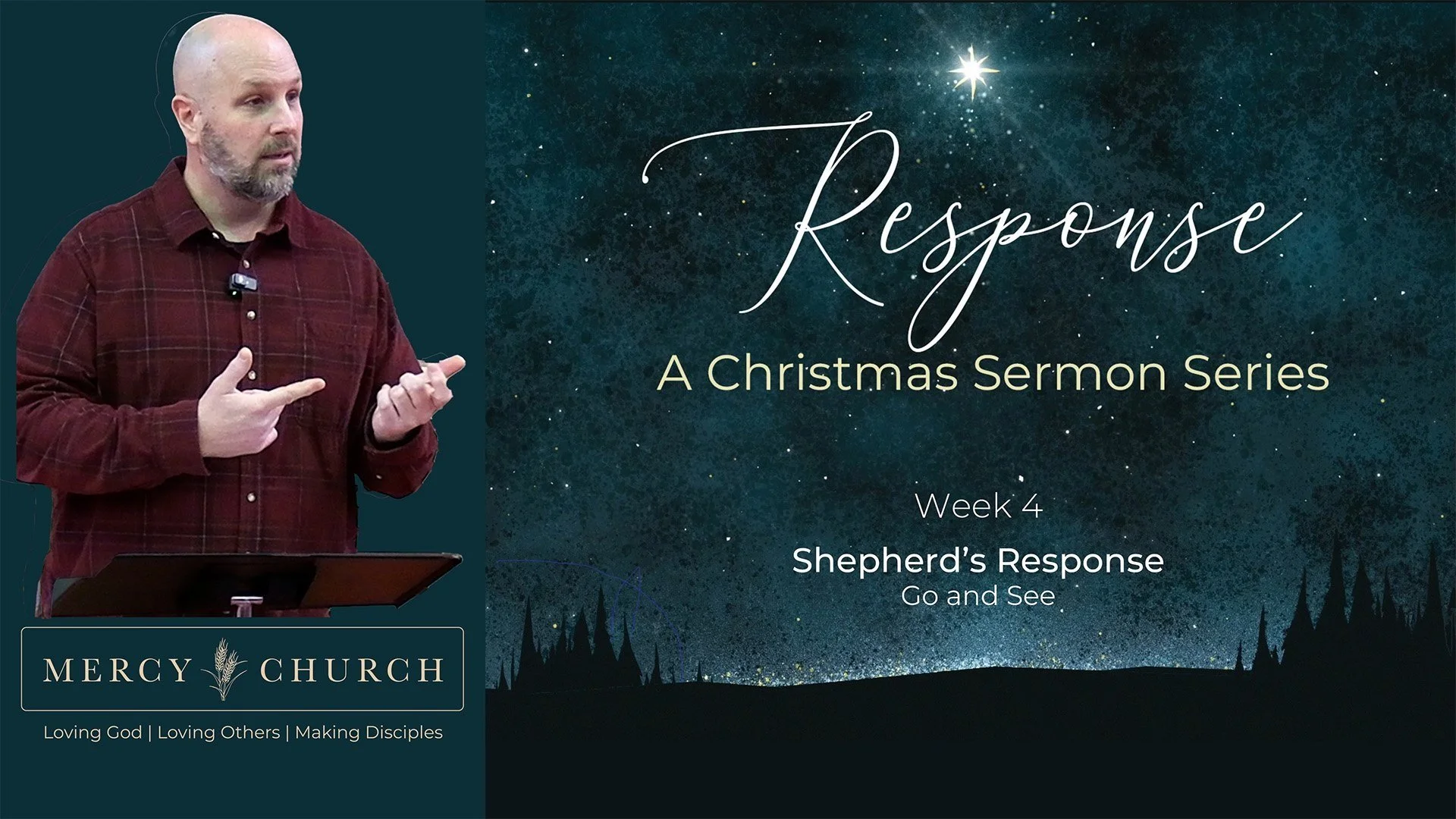Shepherd's Response
Pastor Tim's sermon uses the Christmas story to explore the shepherds' responses to the birth of Jesus. He highlights three key responses: initial fear, subsequent investigation driven by faith, and finally, sharing the good news with others. The sermon emphasizes the importance of a reverential fear of God alongside joyful celebration and the responsibility to share one's faith, even with imperfect understanding. Pastor Tim uses personal anecdotes to illustrate these points, encouraging listeners to actively engage with their faith and share their experiences with others.
Deep Dive Podcast
Understanding the Shepherd's Response to Jesus' Birth: A Study Guide
Quiz
Instructions: Answer the following questions in 2-3 sentences each.
What is the historical context of the shepherds' story in Luke Chapter 2?
How does Luke's description of the shepherds' location (nearby) contrast with the Magi?
What is the initial response of the shepherds to the angel's appearance?
How is the concept of "glory" related to the angel's appearance?
Why might the shepherds' initial fear be considered a healthy response?
Besides "do not fear," what are the key elements of the angel's message?
What actions do the shepherds take after the angels leave?
What alternative responses could the shepherds have had to the angelic encounter?
What does Pastor Tim suggest is the "natural response" to God working in one's life?
How does Pastor Tim use the example of his friend Chris to illustrate the concept of sharing one's faith?
Answer Key
The story takes place during the census ordered by Caesar Augustus while Quirinius was governor of Syria. This context emphasizes the historical grounding of the event.
The shepherds being "nearby" emphasizes their immediate proximity to the event of Jesus' birth, contrasting with the Magi who traveled from a far-off land. This highlights that Jesus' message is for everyone, both near and far.
The shepherds are "terrified" by the angel's appearance. This is a natural response to encountering a divine being and reflects their understanding of the angel's power and authority.
The angel is described as shining with the "glory of the Lord." This glory is not merely physical light but represents the manifestation of God's holiness and presence, invoking a sense of awe and wonder.
Their fear demonstrates a recognition of the power and holiness of God and His messenger. This reverential fear is a sign of respect and acknowledges the shepherds' own limited understanding.
The angel announces the good news of the Savior's birth in Bethlehem. The sign is the baby wrapped in cloths and lying in a manger, emphasizing the humble circumstances of Jesus' arrival.
The shepherds, driven by faith and curiosity, immediately travel to Bethlehem to see the baby Jesus. This demonstrates their active belief and desire to witness the event for themselves.
They could have dismissed the event as a hallucination, claiming it wasn't real. They could have also used their duties as shepherds as an excuse to avoid going.
Pastor Tim suggests that a natural response to God working in your life is to share that experience with others. The overflow of God's presence and work should inspire sharing and testimony.
Chris's excitement to share his newfound understanding of Scripture with his friends, even in a casual setting, highlights the genuine joy and desire to spread the message that comes from encountering God's truth.
Essay Questions
Analyze the significance of the shepherds as the first recipients of the angelic announcement of Jesus' birth. Consider their social status, occupation, and how their perspective might have differed from other groups in society.
Discuss the tension between fear and joy in the shepherds' encounter with the angel. How does this tension reflect the larger paradox of the Christian faith?
Explore the idea of "going and seeing" as a response to faith. How does this concept apply to the shepherds' actions and what implications does it have for modern believers?
Analyze the shepherds' decision to share the news of Jesus' birth with others. What motivated them to spread the word and what lessons can we learn from their example?
Examine the role of personal experience and testimony in sharing faith. How does Pastor Tim's story about his friend Chris illustrate the power of authentically sharing one's encounter with God?
Glossary of Key Terms
Caesar Augustus: The Roman Emperor at the time of Jesus' birth.
Census: An official count of the population, often used for taxation purposes.
Quirinius: The Roman governor of Syria during the time of the census.
Shepherds: People who tend and care for sheep, often depicted as humble and hardworking in biblical times.
Angel: A divine messenger from God.
Glory of the Lord: A manifestation of God's presence, power, and holiness, often accompanied by brilliant light.
Terrified/Sore Afraid: The shepherds' initial reaction to the angel's appearance, reflecting a healthy fear and reverence for God.
Messiah: The Hebrew word for "anointed one," referring to the promised deliverer of the Jewish people.
Savior: A title for Jesus, signifying his role in delivering humanity from sin and death.
Manger: A feeding trough for animals, signifying the humble circumstances of Jesus' birth.
Heavenly Host: A large group of angels.
Peace: A state of tranquility and harmony, brought about through Jesus' arrival.
Favor: God's grace and blessing.
Going and Seeing: The shepherds' active response to the angel's message, driven by faith and a desire to experience the truth for themselves.
Testimony: Sharing one's personal experience of God's work in their life.

